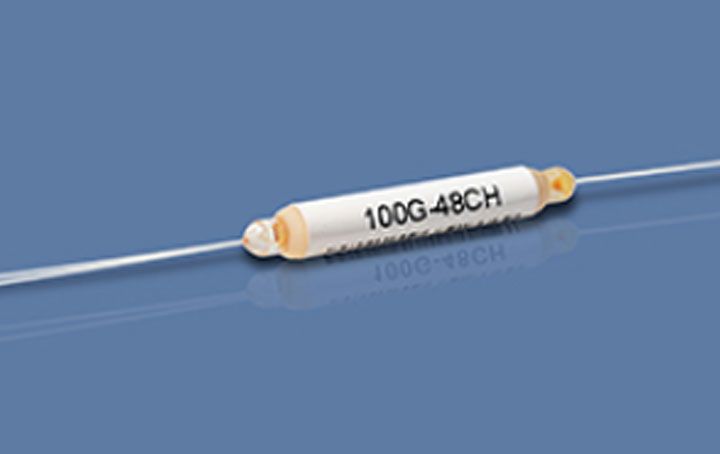DWDM Products

제품 설명
DWDM Products
DWDM Technology (dense wavelength division multiplexing) can combine multiple optical wavelengths and transmit them with one optical fiber. This is a laser technology used to improve the bandwidth of the existing optical fiber backbone network. More specifically, the DWDM technology multiplexes the close spectral spacing of a single optical fiber carrier in a specified optical fibre to facilitate the achievable transmission performance (for example, to achieve the minimum degree of dispersion or attenuation), so that the total number of optical fibers required can be reduced under a given information transmission capacity.
The wavelength range of DWDM technology is 1525nm-1565nm (C-band) and 1570nm-1610nm (L-band). It is a small section taken from the CWDM wavelength range. The commonly used is 1525nm-1565nm (C-band). The wavelength interval of this band range is 0.8nm.
Different Types of DWDM for Sale
PHXFIBER provides DWDM optical network with high quality and unique design. The DWDM price is reasonable and competitive for you. DWDM system complies with GR-1221, RoHs, and GR-1209. DWDM network has high stability and reliability.
Mini DWDM Modules/ Cassette DWDM Modules/DWDM Modules
100g Dense Wavelength Division Multiplexer
100G, 200G, 1X2 DWDM Single Device (3 PORTS)
100G, 200G DWDM
100GHz DWDM
FWDM
DWDM Working Principle
Dense Wavelength Division Multiplexing (DWDM) relies on the optical carriers and can transmit multiple electrical information at the same time. However, only one optical fiber can complete the optical fiber communication technology required by the system capacity expansion. It forms a transmitter through several optical signals with different wavelengths. After multiplexing, it starts transmission and enters the optical fiber amplifier. Then the optical signal is separated and demultiplexed and transmitted to their respective terminals for the reception. Because only one optical fiber can complete the needs of multiple virtual path transmissions, it can reduce many costs and make full use of resources. Therefore, compared with traditional systems, the dense wavelength division multiplexing system (DWDM system) has strong advantages. It can not only maximize the use of broadband but also continuously expand the capacity of the network and optimize the structure. The process is simple and clear, but also very flexible. It has great potential and space in the field of optical fiber communication.
Features of DWDM Products
With Lower Insert Loss and Not Sensitive for Direction
Comply with GR-1221, RoHs and GR-1209
High Stability and Reliability
Can Be Used Widely in Passive Next Work, Catv, Pon Net Work and So on
Advantages of DWDM Products
DWDM Technology Allows Different Wavelengths
The loss is not sensitive to the transmission light wavelength and can meet the transmission needs of different wavelengths.
DWDM Transmission is Uniform
With uniform light splitting, the signal can be evenly distributed to users.
DWDM Technology Saves Space
With compact structure and small volume, DWDM can be directly installed in various existing handover boxes without special design, leaving a lot of installation space.
DWDM Technology Has Many Channels
There are many shunt channels for a single device, which can reach more than 32 channels.
DWDM Technology is Cost-effective
The cost of multi-channel is low, and the more the number of branches, the more obvious the cost advantage.
FAQs of DWDM
What are the benefits of DWDM technology?
Increased bandwidth: DWDM allows for the transmission of multiple data signals simultaneously, significantly increasing the capacity of the fiber.
Cost-effective: Reduces the need for additional physical fibers, cutting down on infrastructure costs.
Long-distance transmission: DWDM is ideal for long-haul communication, as it can transmit signals over large distances with minimal signal loss when amplified.

